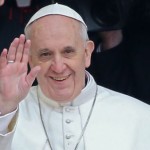“All Men Are Born Free By Nature”: Theological Conceptions of Freedom
by Tamer Nashef
Filed under History, Uncategorized

The development of the concept of freedom as an inalienable human right is undoubtedly a hallmark of modernity and one of Western civilization’s most deservedly celebrated achievements. John Milton (1608-1674), the English poet and author of one of the masterpieces of the English language Paradise Lost, regarded freedom as a God-given right rather than as a privilege vouchsafed upon the subjects by their rulers at a whim. Freedom “is not Caesar’s,” Milton wrote, “but is a birthday gift to us from God himself.” In the same century, the great Jewish philosopher Baruch Spinoza (1632-1677), whose unorthodox views on divinity and iconoclastic writings on biblical criticism landed him in trouble with his community and European surroundings, saw democracy as the best form of government particularly because he believed it retained “that freedom which nature grants to every man.”
Contemporary with Milton and Spinoza was John Locke (1632-1704), known as the “philosopher of freedom”, who defined “liberty” (along with “life” and “property”) as a natural and God-given right. Should the state fail in safeguarding these three fundamental rights, Locke proposed, the subjects would then have the legitimacy to bring down their government and replace it with another that could perform its duties. Thomas Jefferson (died 1826), one of the Founding Fathers of the United States, echoed Locke’s ideas when he characterized “liberty” (in addition to “life” and the “pursuit of happiness”) as “inherent” and “inalienable.”
Despite the massive influence of these 17th-century philosophers on the evolution of the Western mind, did their writings really mark the advent of the idea of freedom as the natural and original condition of man? Or do the conceptual roots of freedom lie elsewhere, perhaps in ancient Greece or Rome, for example? Not exactly.
Though the truly stunning scientific, technological, and philosophical contributions of ancient Greece (600 BC-30 BC) constituted a quantum leap in the history of mankind, it should be remembered that freedom among the Greeks was the exception rather than the norm. The economic systems of Greek city-states were founded on slavery, and in many of these city-states, the number of slaves exceeded that of free men. Commenting on the social tensions in Athens in the period between 650 BC and 600 BC, Aristotle stated that “the majority were slaves of the few”, a consequence of debt-bondage. It is also noteworthy that Athenian democracy excluded both women and slaves. Moreover, when Melos rejected Athenian demands to become its colony in 416 BC, the Athenians besieged the island, and following its surrender, they not only put all men to the sword but also sold women and children into slavery.
This reality found echoes in the writings of several Greek philosophers. Plato (c. 427-347 BC), for example, posited the existence of “slavish people” who by nature lacked the capacity for virtue or culture. While warning against the mistreatment of slaves and opposing the enslavement of his fellow Greeks, Plato approved of enslaving foreigners, believing that “barbarian” (foreign) slaves were required to perform all labor. No wonder that when he died, his estate included five slaves. Plato’s student Aristotle (384-322 BC) held similar views, arguing that “from the hour of their birth, some are marked out for subjection, others for rule.” For him the institution of slavery was necessary to enable enlightened men to have idle time and energy to seek wisdom and virtue. Upon his death, Aristotle had 14 slaves in his possession.
Few Greek philosophers did dissent from these prevailing views. The followers of Antisthenes (445 BC-365 BC), a disciple of Socrates and one of the founders of Cynicism, condemned slavery. Stoic philosopher Epictetus (50-130 AD) announced the equality of slaves and free men on the grounds that all were the children of God. These humane ideas, however, stopped short of prompting the abolition of slavery in antiquity.
Slavery continued to be a fundamental feature of social and economic life in the Roman Republic and its successor the empire. By the time of Emperor Augustus (r. 27 BC–AD 14), there were one million slaves out of a population of four million in Italy. According to other estimates, there were two million slaves out of six million. Biographer and essayist Plutarch (c. AD 46 – c. 120) estimated that the seven-year Roman conquest of Gaul resulted in the killing of one million people, adding that another million were sold into slavery. It is common knowledge that the legendary slave Spartacus (died 71 BC) led one of the greatest uprisings in ancient history until it was violently put down by the forces of M. Licinius Crassus, one of the wealthiest slave-owners in Rome. Furthermore, the Romans were familiar with water power but did not bother to exploit or harness it because they relied on slaves to perform manual tasks. Discussing the prevalence of slavery in the Roman era, historian Norman Davies in his authoritative Europe: A History writes the following:
Slavery was omnipresent in Roman society, and in some estimations the key institution of the economy. It provided the manpower for agriculture and industry, and underpinned the luxury of the cities. It involved the total physical, economic, and sexual exploitation of the slaves and their children. It was supported by the wars of the Republic, which brought in millions of captives, and in later centuries by systematic slave-raiding and slave-trading. Julius Caesar sold off 53,000 Galic prisoners after one battle alone, at Atuatia (Namia).
Did the arrival of Christianity change the situation? First it should be recalled that Christianity inherited, rather than originated, the institution of slavery. Thus, it appears that St Paul took its existence for granted, urging slaves to be obedient to their masters “as to Christ.”1However, he tried to comfort them by pointing out that their situation did not influence their status in the sight of God:
Were you a slave when you were called? Don’t let it trouble you—although if you can gain your freedom, do so. For the one who was a slave when called to faith in the Lord is the Lord’s freed person; similarly, the one who was free when called is Christ’s slave.2
He also preached the basic unity and equality of free men and slaves, Jews and Gentiles upon converting to the new faith:
For we were all baptized by one Spirit so as to form one body—whether Jews or Gentiles, slave or free—and we were all given the one Spirit to drink.3
Possibly as a consequence of St Paul’s writings, a number of Christian theologians in the first few centuries seemed to accept the existence of slaves. In a letter to his fellow bishop Polycarp of Smyrna, Ignatius of Antioch (c. 35–c. 107) counseled that slaves be treated well but ruled out the use of church funds to help them buy their freedom. Probably wishing to preserve public order, the Synod of Gangra in the fourth century condemned anyone encouraging discontent among slaves. As for St Augustine (died 430), he viewed slavery as a product of original sin and punishment for evil:
The primary cause of slavery, then, is sin...and this can only be by a judgement of God, in whom there is no unrighteousness, and who knows how to assign divers punishments according to the deserts of the sinners.
These views were soon challenged by a growing number of theologians and church fathers who began to disapprove of slavery, seeing it as incongruent with the teachings of their religion. As early as the 4th century, Gregory of Nyssa (335 – c. 395), one of the Cappadocian Fathers,4 indignantly denounced slavery in a sermon on the Book of Ecclesiastes. Pope Gregory the Great (died 604) went one step further, proposing the manumission of slaves and referring to the original liberty human beings had enjoyed. A French missionary and bishop of Noyon by the name of Saint Eligius (c. 590-c. 660) single-handedly freed slaves, including men, women, Romans, Britons, Gauls, and Saxons. In a work dedicated to Charlemagne (r. 768-814), king of the Franks and Holy Roman Emperor, Benedictine monk Saint Smaragde of Saint-Mihiel (c. 760–c. 840), wrote: “Most merciful king, forbid that there should be any slave in your kingdom.” Slavery in Europe had virtually withered away by the end of the 10th century.
Consequent to the disappearance of slavery was the medieval Europeans’ development of new and inventive methods of generating wind and water power to such an extent that medieval Europe is believed to have become “the first great civilization not to be run primarily by human muscle power.” Recall that ancient Rome had dispensed with the exploitation of natural energy due to its heavy reliance on slavery while the dwindling number of slaves in medieval Europe goaded Europeans into seeking out new technologies as a substitute. A manifestation of this change was the proliferation of water and wind mills across Western Europe. A 9th–century inventory reveals a third of the estates along the Seine River in the area around Paris had water mills. The Domesday Book, put together in 1086 at the behest of King of England William the Conqueror (r. 1066-1087), shows that no less than 5,624 water-powered mills were operating in England. This constituted a decidedly dramatic increase from less than 100 mills a century earlier. Between the 11th and 13th century, the number of water mills in the administrative division of Aube in northeast France grew from 14 to more than 200. Medieval Europeans used water power to “crush ores, manufacture iron, pound flax or hemp in preparation for the making of linen, turn saws and knives, and crush malt for beer, among other uses.”
Though slavery in Europe gave way to serfdom, European forces in Spain continued enslaving Muslims (and vice versa) in the battlefield. Also, northern Italian firms were involved in the slave trade until the 15th century, with wealthy Italians like the Medici family owning slaves. Prominent Christian theologians, however, maintained their rejection of slavery. Thomas Aquinas (1225-1274), arguably the greatest theologian of the European Middle Ages, judged that slavery ran counter to natural law. Dominican priest and Thomist theologian at the University of SalamancaFather Domingo de Soto (died 1560), ”a founder of the general theory of international law”, declared that “all men are born free by nature.” Spanish Jesuit priest and theologian Francisco Suarez (1548-1617) upheld freedom as the natural condition of man, stressing that “men are born free, and therefore none has political jurisdiction over another, just as no dominion.”
Admittedly, slavery re-emerged in the New World with a vengeance, but the brutal European practices against the natives triggered the indignation of several popes and theologians. For example, Pope Eugene IV in 1435 threatened to excommunicate those attempting to enslave the indigenous population of the Canary Islands. In 1537, Pope Paul III issued three pronouncements against the enslavement of Indians and Africans in the New World. Equally telling was a forceful 16th-century sermon entitled “I am a voice crying in the wilderness” by Antonio de Montesinos (died 1545). In the sermon, de Montesinos, a Spanish Dominican friar and missionary on the island of Hispaniola, decried Spanish “sins against the Indians,” proclaiming that the Spaniards were “in mortal sin” due to their “cruelty and tyranny” against “these innocent people.” He thundered:
Tell me, by what right or justice do you keep these Indians in such a cruel and horrible servitude? On what authority have you waged a detestable war against these people, who dwelt quietly and peacefully on their own land?...Why do you keep them so oppressed and weary, not giving them enough to eat nor taking care of them in their illness? For with excessive work you demand of them they fall ill and die, or rather you kill them with your desire to extract and acquire gold every day...Are these not men? Have they not rational souls? Are you not bound to love them as you love yourself?...Be certain that, in such a state as this, you can no more be saved than the Moors or Turks.
Francisco de Vitoria (1483–1546), Dominican theologian from the University of Salamanca and “the founder of modern international law”,restated the idea of man’s natural and original liberty. He defended the rights of the natives in the New World, contending that “neither their princes nor private persons could be despoiled of their property on the ground of their not being true owners.” He further held that the natives were rational human beings with their own laws, customs, and administration:
According to the truth of the matter they are not irrational, but they have the use of reason in their own way. This is clear because they have a certain order in their affairs, ordered cities, separate marriages, magistrates, rulers, laws...Also they do not err in things that are evident to others, which is evidence of the use of reason. Again, God and nature do not fail for a great part of a species in what is necessary. But the special quality in man is reason, and potency which is not actualized is in vain.
Like de Vitoria, Dominican friar Bartolomé de las Casas (died 1566) affirmed the rational nature of the native Americans. He insisted that they “be attracted gently, in accordance with Christ’s doctrine”, rejected Aristotle’s views on natural slavery, and stressed that “we have in our favor Christ’s mandate: love your neighbor as yourself.” He spoke out against the “wrongs and injuries [against the natives] never before heard of or seen, received from our Spaniards” and called “to restore them to the primitive liberty [my italics] of which they were unjustly deprived.”
Free Will
Coupled with the idea of man’s natural and inborn freedom, Christian theologians (whether “orthodox” or “heretical”) by and large laid stress on freedom of choice and human capacity for free will. As sociologist Rodney Stark assesses, the Christian belief in free will “had remarkable behavioral consequences...it created a tendency for people not to be resigned to things as they are but rather to attempt to make the situation better.” Gregory of Nyssa conceived of human beings as the creators of their destiny and the shapers of their personalities:
...our spiritual birth is the result of a free choice, and we are in a certain way our own parents, creating ourselves as we ourselves wish to be, and through our will forming ourselves in accordance with the model we choose.
As he grew older Augustine became increasingly lukewarm about the idea of free will, believing that man’s inherent sinfulness detracted from the ability to act freely. Earlier in his life, however, Augustine passionately defended free will, stating that “what each one chooses to pursue and embrace is within the power of his will to determine.” He ruled out any conflict between God’s foreknowledge and freedom of choice, asserting
both that God knows all things before they come to pass, and that we do by our free will whatsoever we know and feel to be done by us only because we will it. But that all things come from fate we do not say; nay we affirm that nothing comes to pass by fate.
In the 6th century, Boethius formulated a reasoned solution to the problem involving the apparent contradiction between divine foreknowledge and human free choice, proposing that ”God beholds as present those future events which happen because of free will.” Aquinas believed that free will was an integral part of being rational: “That man acts from free judgement follows necessarily from the fact that he is rational.” In the same century, the English natural philosopher Roger Bacon (died 1292) passionately practiced astrology, but insisted:
What is true is that the influences of the stars implant certain tendencies to good or evil action, always at the same time leaving free scope to human will [my italics]... that climate affects character is obvious to everyone.
Numerous other medieval theologians pleaded for free will, including Duns Scotus (1266-1308), Peter Olivi (c. 1247-1298), Peter de Rivo, Giovanni Pico della Mirandola (1463-1494), Pietro Pomponazzi (1462-1525), and Erasmus (1466?-1536). The idea that free actions affected salvation in the afterlife suffered a certain setback with the Reformation in the 16th century.5 Likely influenced by Calvinism, Flemish bishop Cornelius Jansen (1585-1638) and his disciples endorsed predestination and held that human beings lacked the free will to reject grace. As part of the Catholic Counter-Reformation, however, the Council of Trent (1551-1552, 1562-1563) reaffirmed the doctrine of free will. Spanish Jesuit theologian and philosopher Luis de Molina (1535-1600) argued, in the words of professor of philosophy Jorge J. E. Gracia, that “although God has foreknowledge of what human beings will choose to do, neither that nor God’s grace determine human will.” Similarly, the magnitude of human will impressed the outstanding 17th century Catholic philosopher and scientist Rene Descartes (died 1650) who wrote: “The will, or freedom of choice, which I experience in myself is so great that the idea of any greater faculty is beyond my grasp.”
Limited Government, Resistance to Tyranny
Stark notes that the Christian belief in free will “called into question the legitimacy of social structures and customs that limited the individual’s ability to choose freely – especially slavery and tyranny.” I accept this assessment but it is important to add that it took centuries for this idea to evolve, come to fruition, and take effect in practice. Until roughly the 12th century, Christian political thought had ascribed divine origins to temporal authority in the sense that the ruler was in power because God had willed it so. St Paul enjoined Christians to obey and respect the ruling authority:
Let everyone be subject to the governing authorities, for there is no authority except that which God has established. The authorities that exist have been established by God.6
Augustine condemned “kingdoms” as “great robberies” but thought that their establishment was necessary to curb man’s innate proclivity for evildoing. He thus warned that absent the restraining laws legislated by the state, “men’s brazen capacity to do harm, their urge to self-indulgence would rage to the full.” Despite his negative view of the state (or perhaps because of his fear of the alternative), Augustine urged obedience, or at worse passive resistance, to the earthly leader no matter how tyrannical, sinful, or oppressive he was. Compliance with the will of the ruler, he thought, would enable the believer to avoid the distractions of earthly existence and to focus on attaining salvation.
This did not mean that temporal authority wielded unlimited powers. As the centuries elapsed, theologians reminded Christian kings and princes that they were accountable to God and that they were not permitted to behave arbitrarily or to mistreat their subjects. Their responsibilities included protecting the church, aiding the weak and poor, administering justice, and leading a virtuous life. In a letter to King of Wessex Ethelred, English scholar Alcuin (c. 735–804) wrote:
But, above all, have the love of God in your hearts, and show that love by keeping his commandments. Love him as a father, that he may defend you as sons. Whether you will or not, you will have him as a judge. Pay heed to good works, that he may be propitious to you. ‘For the fashion of the world passeth away’; and all things are fleeting which are seen or possessed here. This alone from his labor can a man take with him, what he did in alms-giving and good works. We must stand before the judgement seat of Christ, and each must show all that he did, whether good or evil. Beware of the torments of hell, while they can be avoided; and acquire for yourselves the kingdom of God and eternal beatitude with Christ and his saints in eternal ages.
In the 8th century, Cathwulf sent a letter to Charlemagne, advising him to
always remember, therefore, my king, with fear and love for God your king, that you are in his place to look after and rule over all his members and to give account on judgement day even for yourself. And a bishop is second in place; he is only in Christ’s place. Ponder, therefore, within yourself how diligently to establish God’s law over the people of God.
Gradually, Christian political thought began developing the idea that not only was the ruler not invested with absolute powers, but he was also at risk of being overthrown should his policies harm his subjects and violate the laws of the realm under his jurisdiction. His legitimacy and authority derived from the people and failure to carry out the subjects’ will merited rebellion. As early as the 10th century, an English abbot named Aelfric (died c. 1010) remarked:
No man can make himself king, but the people [have] the choice to choose a king whom they please [my italics]; but after he is consecrated as king, he then has dominion over the people, and they cannot shake his yoke from their necks.
Commenting on these groundbreaking words, British scholar Nick Spencer writes in The Evolution of the West:
This was an extraordinary idea for the time, not so very far from the ideas of Thomas Hobbes or John Locke over six centuries later. It is not democracy in any recognizable format but it is not hard to see how democratic accountability could emerge from it.
In his Policraticus or Statesman’s Book (1159), “the first complete political treatise of the Middle Ages”, the great 12th-century English scholar John of Salisbury legitimized and justified the killing of tyrants, stressing: ”It is not only permitted, but it is also equitable and just to slay tyrants.” Relying on the Bible, Classical literature, and logic, he defended the imposition of limits on royal power and offered support for a limited and responsible monarchy. Exploring the difference between a tyrant and a prince, he wrote that the latter
is obedient to law, and rules his people by a will that places itself at their service, and administers rewards and burdens within the republic under the guidance of law in a way favourable to the vindication of his eminent post.
Explicit in the passage above is the idea that even the king is subject to law and is required to serve his subjects and promote their interests, not the other way around. Aquinas articulated similar opinions in the following century, giving sanction to the removal of tyrants:
If to provide itself with a king belongs to the right of a given multitude, it is not unjust that the king be deposed or have his power restricted by the same multitude if, becoming a tyrant, he abuses his royal power.
At the same time, Aquinas added caveats to his support for the deposal of tyrants, fearing that the sanction to rebel against existing authorities might inadvertently pave the way for the assassination of otherwise just rulers by rebels with ill intentions.
The concept of responsible and limited government enjoyed a major boost in 1215 when English nobles and churchmen forced King John (r. 1199-1216) to sign the Magna Carta or Great Charter. ”In the history of Western law,” writes Spencer, “it is one of the earliest – if not the very first – examples of a legal framework that held the monarchy to account for the fulfillment of its promises.” One of its clauses made it clear that the subjects’ obedience to the king was contingent upon the king’s compliance with the document. In fact, the king was now liable to the judgment of a group of 25 barons. The charter further prohibited arbitrary arrest, stipulated trial by jury, and stated that the king was forbidden from seizing the land of a debtor and from levying taxes without “the common consent of our kingdom.” The primary message of this revolutionary document was that the monarch could no longer rule as he pleased and that no one was above the law. It is important to note that the document did not emerge out of the blue but formed a continuum with the pioneering work of canon lawyers in the preceding century such as Gratian (author of Concordance of Discordant Canons), Pierre de Chanter, and Stephen Langton (Archbishop of Canterbury).
Medieval calls for limited government did not end with John of Salisbury, Aquinas, or the Magna Carta. Marsilius of Padua (1275-1342) wasanItalian political theorist of high caliber who challenged papal claims to supremacy over secular rulers, and as a result his works faced condemnation in Paris and Rome. Nonetheless, Marsilius is notable for rejecting religious persecution and emphasizing the necessity of toleration. He suggested that “heretics” ought to be dealt with in the afterlife rather than at the hands of existing religious or political authorities – a proposition that prefigured Locke’s statement centuries later that ”the care of each man’s salvation belongs only to himself.” More relevant to our discussion is Marsilius’ conception of the ruler as a servant of the people; should the ruler fall short of abiding by the will of his subjects, he ought to be deposed. Political power, as Marsilius conceived it, ultimately lies in the hands of the community which delegates it to the ruler. The latter’s authority, therefore, rests on the approval of his subjects. Marsilius’ contemporary William of Ockham (died 1347), an English Franciscan friar and scholastic philosopher,thought subjects had the right to disobey laws that violated natural law and that earthly government should enjoy the consent of the governed. He was one of those who had set the stage for the separation of secular and spiritual authorities by stating that “just as spiritual matters are controlled by priests and ecclesiastics, so are temporal matters by secular rulers and laymen as blessed Peter testifies.”
I am certain there will be those eager to point out that there were Catholic apologists for absolute authority. I willingly concede that Bishop Jean Bossuet (1627-1704), for example, opined that obedience to the ruler must be absolute and that in the absence of a strong government, “all is confusion and the state returns to anarchy,” an idea that runs remarkably close to Thomas Hobbes (1588-1679). One could also talk of French political philosopher Joseph de Maistre (1753-1821) who opposed the French Revolution, advocated an absolute monarchy, and urged unquestioning subservience to the king.
However, the ideas set forth by the likes of Bossuet and de Maistre would have been an anathema to John of Salisbury, Aquinas, as well as 16th-century Catholic theologians like Robert Bellarmine (1542 –1621), Suarez, and de Molina who continued devising arguments in favor of resisting tyrants. Suarez reiterated the notion that authority resided in the people, stressing that “all power comes from the community.” De Molina argued that tyrannicide was permitted to “any private person whatsoever who may wish to come to the aid of the commonwealth.” All these thinkers and their epoch-making work testify to the significant role of Christian thought 7 in giving prominence to freedom and in formulating the defining features of the modern state: democratic, responsive, limited in its power, and subject to the rule of law.
Related Posts
Notes:
- Ephesians 6:5 ↩
- 1 Corinthians 7:21-22 ↩
- 1 Corinthians 12:13 ↩
- The other two being Basil of Caesarea (330–379) and Gregory of Nazianzus (329–389). ↩
- French theologian John Calvin (1509 –1564) believed that man’s destiny, whether salvation or eternal damnation, had been predetermined and, hence, one’s actions were irrelevant or inconsequential in this regard. ↩
- Romans 13:1. ↩
- Along with the other intellectual wellsprings from which the West drew its values, of course. ↩
Note: Our goal is to cultivate serious and respectful dialogue. While it's OK to disagree—even encouraged!—any snarky, offensive, or off-topic comments will be deleted. Before commenting please read the Commenting Rules and Tips. If you're having trouble commenting, read the Commenting Instructions.












